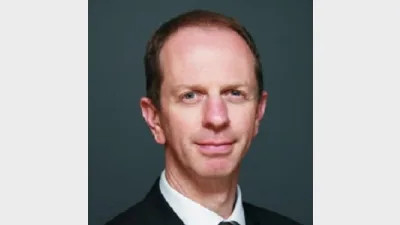ASIC fishing in the claims management pond



The Australian Securities and Investments Commission (ASIC) has admitted that, despite all the recent publicity surrounding CommInsure, it has had little cause to direct its attention towards the claims-handling practices of insurance companies.
The point was made clear by ASIC deputy chairman, Peter Kell, during one of the last public hearings of the Senate Economics Committee Scrutiny of Financial Advice inquiry during which a number of notable claims were made, including suggestions that the Commonwealth Bank's group executive, wealth management, Annabel Spring, was privy to issues within CommInsure, as was CommInsure managing director, Helen Troup.
But in circumstances where ASIC received increased funding in last week's Budget directly related to the CommInsure issue, it is worth noting confirmation from the highest echelons of the regulator that while it was pursuing adviser practices with respect to life/risk, it did not see any particular reason to pursue claims-handling.
While expounding the hard work of ASIC in pursuing advice issues with respect to life/risk, Kell told the committee: "We have not had a significant number of complaints about the claims end of life insurance in recent times. We liaise with the Financial Ombudsman Service (FOS) and the Superannuation Complaints Tribunal (SCT) about those sorts of issues but, in part because of that, it has not had the same level of focus as some of the big problems we have seen at the advice end or through car dealerships."
The ASIC chairman then went on to say, "we are now undertaking a review of industry-wide practices here to determine whether there are red flags, where there might be systemic problems and what should be done about them".
In other words, beyond the allegations raised with respect to CommInsure and the admissions made by the Commonwealth Bank, ASIC held no information of substance which would have given rise to it pursuing an investigation on its own motion.
Now, it seems, it has embarked on a what amounts to a fishing expedition in the claims management arena funded, in part, by the Budget allocations confirmed by the Federal Treasurer, Scott Morrison, in last week's Budget documentation.
So how is ASIC going about this investigation of claims handling? Basically, it is asking the insurers to investigate themselves first before it decides what it ought to do.
As Kell told the Senate Committee, "….there are, broadly speaking two parts to our industry-wide review. The first is that we have written to all insurers asking them to undertake a review of their own claims management practices, their own claims handling in life insurance going back at least five years to determine whether there have been any problematic practices. We have required that there be a level of independent assurance built into those reviews and that they be reported to ASIC; we will then report on those more generally".
"In some of the cases there may be a requirement for remediation to be considered; these sorts of things will play out once those reviews are underway. That is one part of that broader industry review. The other part is work that we are doing to gather information on industry trends and outcomes. For example, we are looking at data from the FOS, from the SCT, from the firms themselves and from consumer organisations that work in this area."
"We are also talking to industry experts and representatives in this area and, of course, our colleagues at APRA [Australian Prudential Regulation Authority] to determine where there might be issues or problems or concerns that have arisen, or particular patterns that may indicate problems or areas where we need to have a further look — whether that is around a particular entity or particular product types or particular definitions. We aim to provide an initial report to government by September this year on that broader industry review. It is likely to lead to, and we expect, follow-up work once we have identified those areas that we should target."
Fishing season has evidently opened, and it seems the regulator is seeking guidance on the best fishing spots.
Recommended for you
In this episode of Relative Return Insider, host Keith Ford and AMP chief economist Shane Oliver discuss the latest shock consumer price index numbers, which rose to 3.8 per cent in October, as well as the shifting US market and calls for super funds to invest in infrastructure projects.
In this episode of Relative Return Insider, host Keith Ford and AMP chief economist Shane Oliver discuss the Reserve Bank of Australia’s cautious stance in response to persistent inflation, subdued growth prospects, and political shifts affecting the nation’s journey towards net zero emissions.
In this episode of Relative Return, host Laura Dew speaks with Rachel White, head of financial adviser services at Vanguard about how advisers can help Australians to feel confident in retirement.
In this episode of Relative Return Insider, host Keith Ford and AMP deputy chief economist Diana Mousina take a look at the Reserve Bank’s unanimous decision to leave rates on hold on Melbourne Cup Day and whether future cuts are still on the cards.








